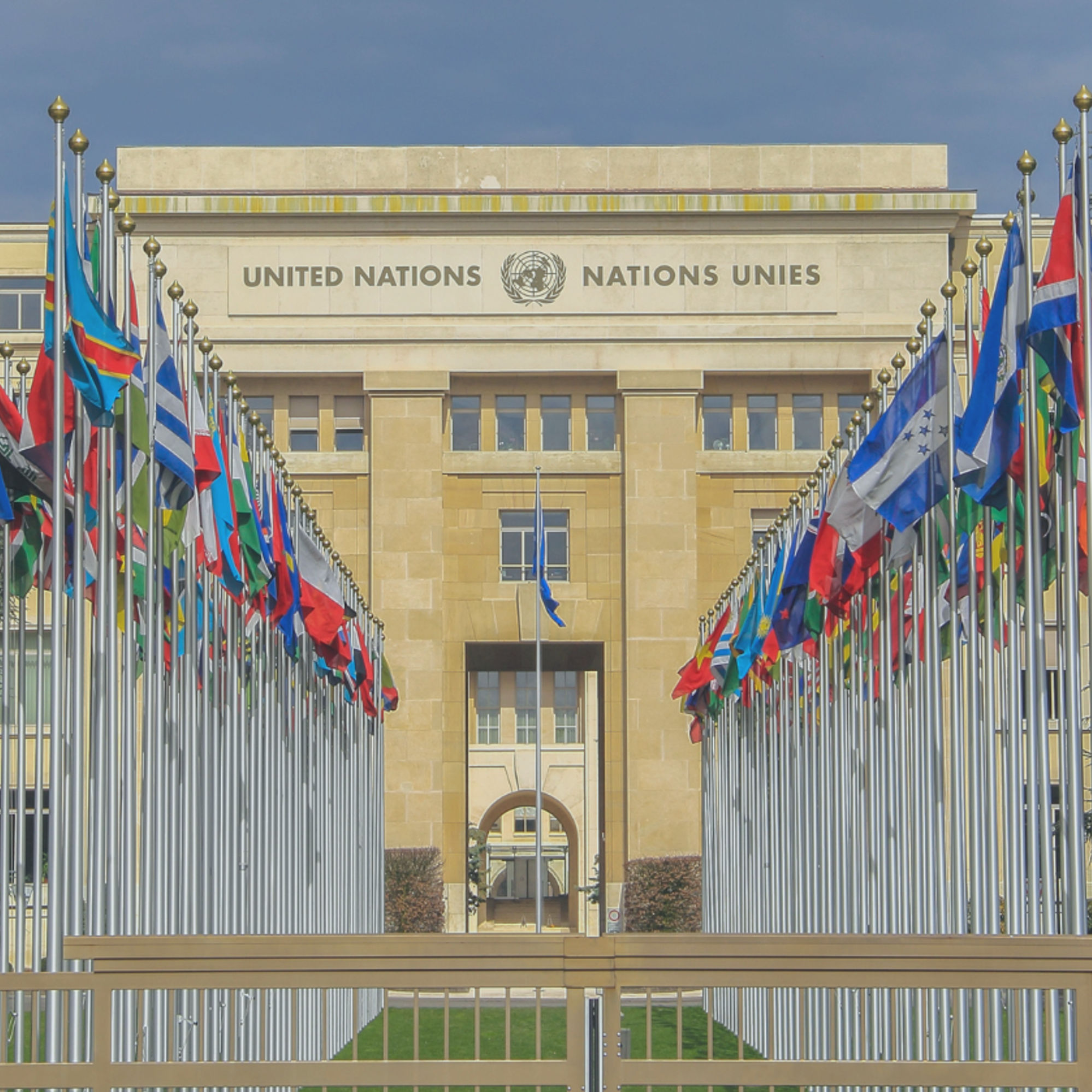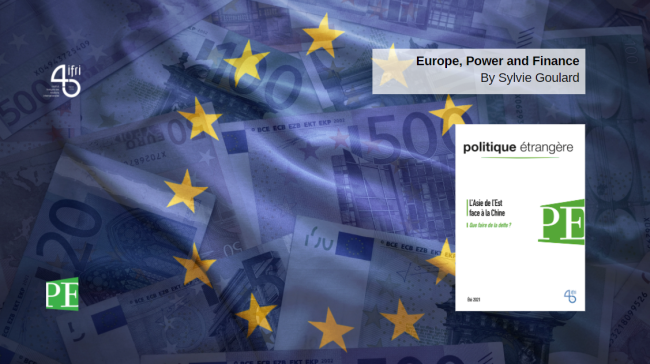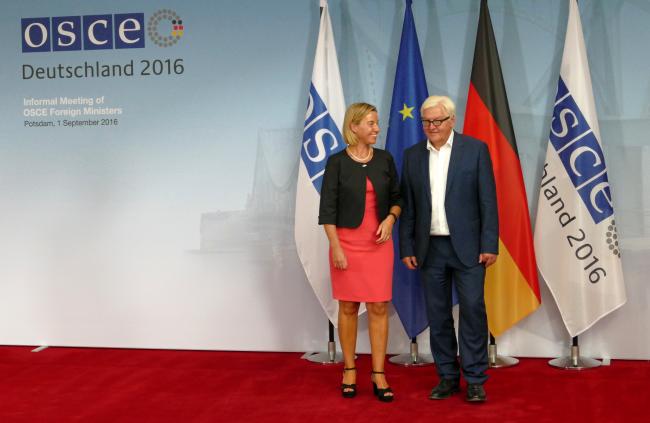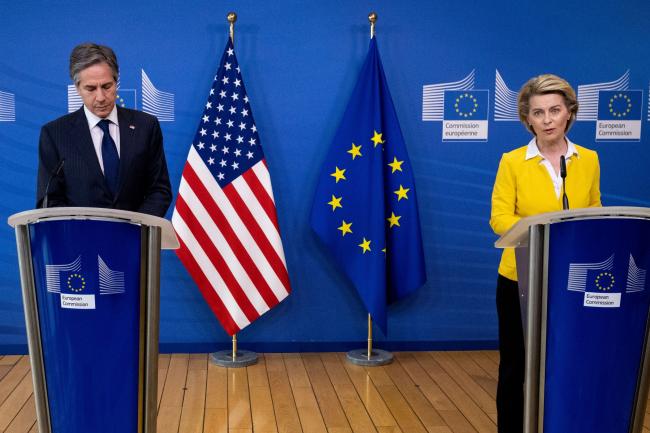International Organizations and Multilateralism
Rhetoric on the crisis of multilateralism is frequent. International organizations (UN, WTO, etc.) remain no less important, while other forums (G20, BRICS, etc.) are asserting themselves.
Related Subjects

Towards Geopolitical German Development Cooperation? Recent History, Current Trends, and Future Prospects
German development cooperation (GDC) in a post-Merkel era can be expected to become more geopolitical. Recently adopted German policy documents like the Indo-Pacific guidelines as well as the support to the geopolitical ambition of the European Commission suggest such a tendency for future German policy making.
Europe, Power and Finance
Finance has become an essential attribute of power. Its importance has grown given the substantial investments needed for the energy and digital transitions as well as the need to support economies affected by the COVID-19 pandemic.
The Importance of the OSCE in German Diplomacy
As an essential platform for multilateralism, the Organization for Security and Co-operation in Europe (OSCE) has always been important to German diplomacy, although in varying degrees. Historically, Germany’s support for the Conference on Security and Co-operation in Europe (CSCE) process was motivated by the aim of mitigating and ultimately overcoming the division of Germany.
From the Digital Levy to the Taxation of Multinationals: Joe Biden's Tax Revolution
The Organisation for Economic Co-operation and Development (OECD) is conducting important negotiations this spring to reform international taxation.
Europe in the Geopolitics of Technology: Connecting the Internal and External Dimensions
To respond to growing global competition, the EU has made notable progress on the internal dimension of technology policy over the past 3 years. It is now also seeking to adapt its foreign policy – from the transatlantic relationship to global partnerships – to technological challenges.
Addressing the Climate Emergency: Closing 1,000 Gigawatts of Coal Plants by 2035
In order to have any chance of limiting global warming to well below +2°C, there is no choice but to tackle coal-fired power plants head-on, around the world.
Chinese Diplomacy: from “Fighting Spirit” to “Warrior Wolf”
The COVID-19 pandemic has led China to develop aggressive communication, with diplomatic missions using social media extensively to spread a positive image of Chinese achievements and to criticize Western countries.
The African Union’s Migration Agenda: An Alternative to European Priorities in Africa?
While migration from Africa is the priority of European policies for the control of the European Union’s external borders, African migration dynamics are above all regional. Sub-Saharan migration is poorly connected to transcontinental flows: more than 70% remain in Africa.
The Economic Pillar of Korea’s New Southern Policy: Building on Existing Assets
Diversification is a key tenet of South Korea’s New Southern Policy (NSP). In the economic sphere, however, the need for diversification is apparently less pressing as, unlike what is observed in the diplomatic and security domains, Korea’s economic partnerships are less unbalanced and are not (or not as clearly) polarized on the big Four (China, Japan, the United States, and Russia).
Japan’s Cybersecurity Strategy: From the Olympics to the Indo-Pacific
In September 2020, the Ifri Center for Asian Studies held an online event on Japan’s cybersecurity strategy.
Russian Gas Diplomacy
Thank goodness our early warning systems during the cold war were not structured so we could see the flash at the same time we heard the warning. On Monday, the Russians notified the Europeans under an “Early Warning” agreement negotiated after the last Ukrainian gas cutoff that they had already cut gas flows to Belarus by 15% and that would increase cuts to 85% by the end of the week. Not very good news for the Belarusians who enjoy the most gasified economy in the world - everything there runs on gas.
Coming in from the Cold? An Update on North Korea's External Economic Relations
This brief analysis of the current external economic relations of the Democratic People’s Republic of Korea (DPRK) leads to a number of conclusions.
EU 2020: Can we afford another failed Lisbon Strategy? Shortcomings and future perspectives
On 3rd of March, the European Commission will publish its final proposal for the new EU 2020 strategy, which will replace the Lisbon Agenda. A few days ahead, we may ask: were lessons drawn from past mistakes? Does the current commission draft look different?
The Institutions of Energy Governance in China
International collaboration, in any form, requires trust, and such trust is built on understanding. In the case of collaboration in the field of energy, potential partners need to have an appreciation of frameworks for energy governance in each others’ countries. Only then can they accurately interpret the data, the statements and the declared commitments provided by other parties. Nowhere is this ignorance of greater relevance to today’s challenges than the case of China.
Ukraine - A Transit Country in Deadlock? Four Scenarios
Should we consider Ukraine a transit country in deadlock, and reduce its energy role just to that of a transit country? Definitely not, because Ukraine is at once a large gas consumer and producer, and possesses massive storage capacity. But the economic and political situation of the country is alarming, even without considering the possibility of another gas crisis Without such a crisis, however, the event of Ukrainian bankruptcy would attract less broad international attention simply because it would not have direct impact on European gas consumers.
Support independent French research
Ifri, a foundation recognized as being of public utility, relies largely on private donors – companies and individuals – to guarantee its sustainability and intellectual independence. Through their funding, donors help maintain the Institute's position among the world's leading think tanks. By benefiting from an internationally recognized network and expertise, donors refine their understanding of geopolitical risk and its consequences on global politics and the economy. In 2025, Ifri supports more than 80 French and foreign companies and organizations.














